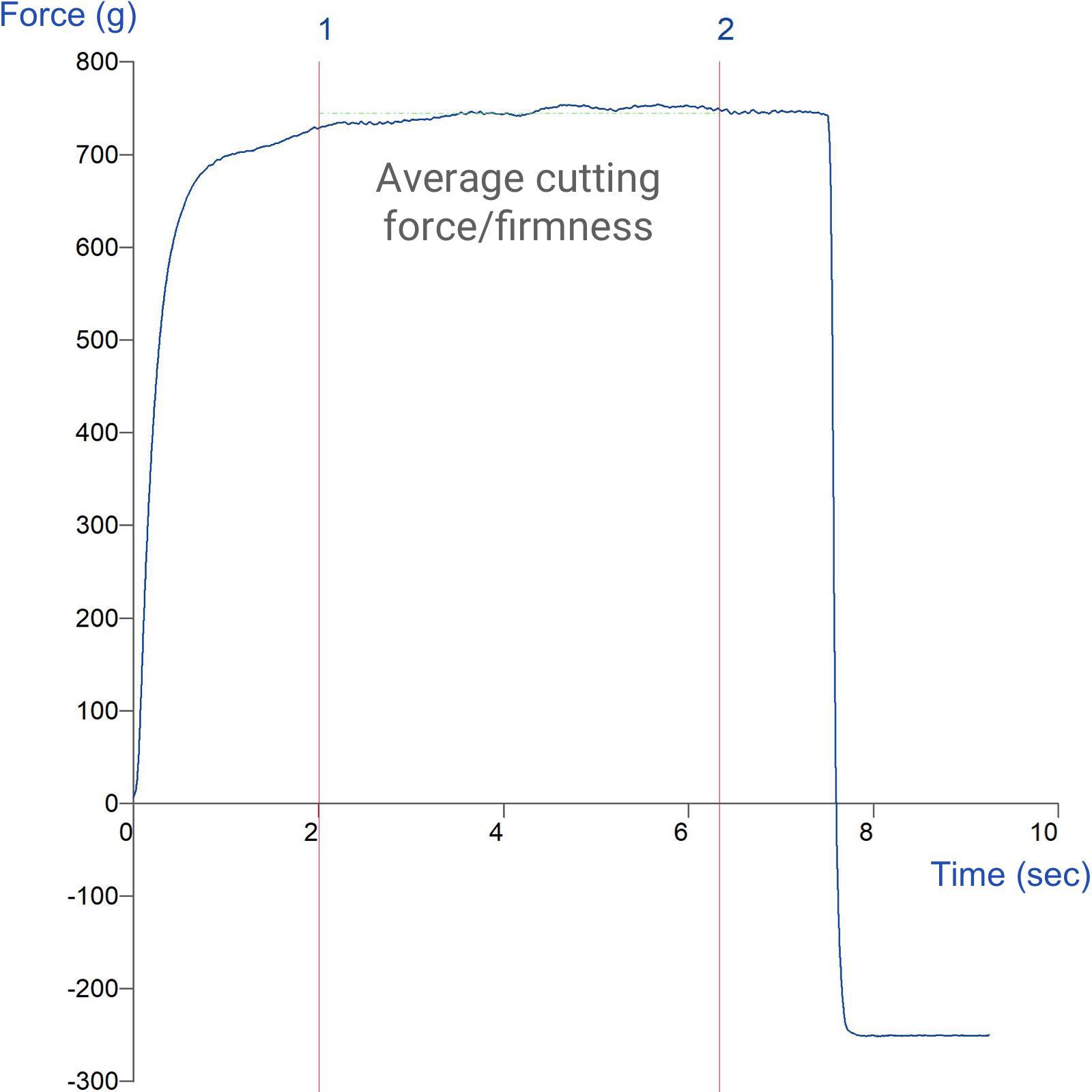Product overview
This device incorporates a standard 0.3mm diameter wire, which is supported on a frame enabling it to cut through a 500g block of butter or similar self-supporting block-form sample.
It can be used to measure the firmness of butter, ice cream or margarine and the consistency of cheese by measuring the force to drive the wire through the sample.
The supporting frame attaches conveniently to the Load Cell by means of a bell-form thumb-operated screw, while the wire, secured by two wing-nuts, can easily be replaced at any time.
How does the Wire Cutter work?
Typical graph

Technical information
Ideal sample form
This attachment can only be used to cut through a sample which is solid and self-supporting and usually in block form.
Benefits and limitations
- Provides constant contact area with sample allowing simpler data analysis
- Wire tension can be set to a chosen tension and checked when required
- Depending on the sample type being tested, this attachment may be used with or without a Heavy Duty Platform
- Can only be used on self-supporting 'block' samples
Installation, Chemical compatability, Cleaning and maintenance
Installation
Full installation instructions are provided within the Education Zone of the latest Exponent/Connect software version and on the technical information sheet accompanying this product.
Chemical compatibility
Stable Micro Systems probes and attachments are commonly made from four materials: anodised aluminium (AA6082 T6), stainless steel (316 T), Delrin (acetyl copolymer) and Perspex (polycarbonate).
In general use, probes and attachments made from these materials will be suitable for testing food products and inert non-food materials.
The four materials listed above are not universally resistant to all types of chemicals and as such the compatibility of the probe/attachment material with the product (to be tested) must be established to prevent damage to the probes and attachments. If the compatibility of the product with the probe is unknown to the customer then the chemical information about the product (Material Safety Data Sheet or Product Data Sheet) should be submitted to Stable Micro Systems. Stable Micro Systems will then assess the suitability of the probe/attachment material for use with the product and advise accordingly. If this advice is not sought then Stable Micro Systems will not accept liability for probes/attachments damaged by chemical attack from the product being tested.
Cleaning and maintenance
All probes and attachments may be cleaned in warm (or hand hot) water using a mild detergent. A soft brush may be used but abrasive cleaning aids should be avoided. Stable Micro Systems products should not be microwaved or cleaned in a dishwasher.
Screw threads should be lightly lubricated after drying using a light lubricant, e.g. petroleum jelly, mineral oil. This will aid the fitting and unscrewing of the item. Each component of a probe or attachment should be wrapped separately when stored, to avoid scratching or chipping. This will safeguard against any unnecessary damage to the accessory.


